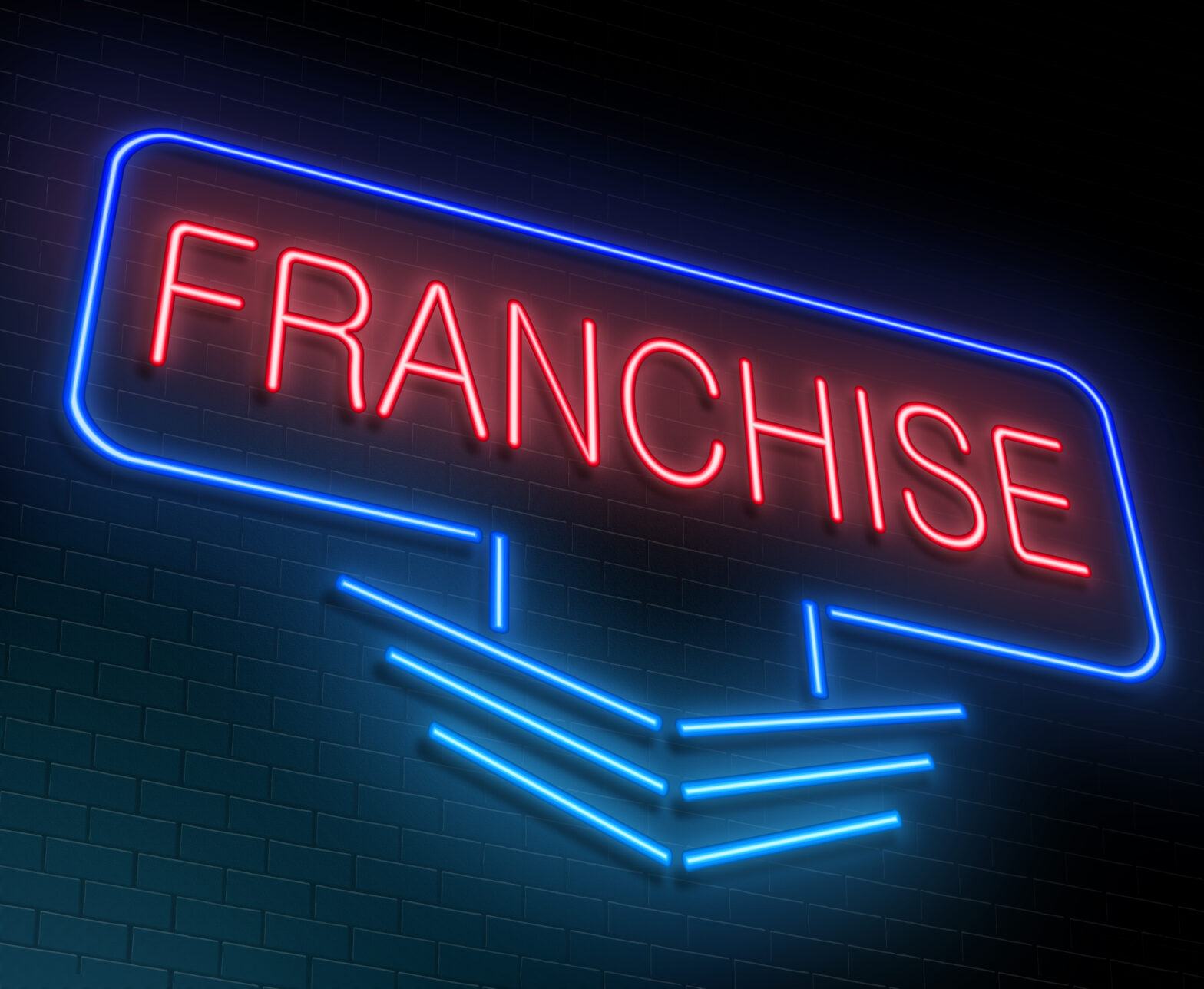The overall contribution of franchising to the UK economy is £13.7 billion which, although less than 1 per cent of GDP, reflects a 20 per cent increase over the past five years and highlights a gradual change in the ways businesses are conducting their operations.
A ‘franchise’, in its most common form, entails the granting of a licence by one person or business, (the franchisor) to another (the franchisee). This enables the franchisee to operate its business under the brand of the franchisor.
To franchise or not to franchise?
There are numerous advantages and disadvantages, from the perspective of both the franchisor and the franchisee, in considering whether or not to franchise and, as such, covering all of the reasons why you should or shouldn’t pursue a franchise arrangement is far beyond the scope of this article. Still, it is useful to consider those key reasons for and against.
The key advantage to a franchisee is its access to the franchisor’s brand reputation, reducing time and resource a smaller business would otherwise spend in order to make the business a successful one. However, a franchisor can impose stringent restrictions on a franchisee, in particular the ability as a franchisee to both operate, and (in the future) sell, the business a franchisee has spent time and resource in building.
One advantage to a franchisor is the ability to utilise the franchisee’s capital to expand its network and secure a more rapid distribution for its products and/or services. One disadvantage, however, may be that a franchisor is revealing know-how and licensing its IP to a franchisee. While this can be controlled and restricted by the provisions of a franchise agreement, there is the risk a franchisor’s IP and know-how can be exploited and, in some circumstances, result in it losing its competitive edge.
Ultimately, pursuing a franchise opportunity is a commercial decision for both parties to make, relative to their particular business plans and goals. However, as more and more businesses explore franchising, it is crucial such businesses carefully consider the numerous legal implications of franchising.
Intellectual property considerations
One issue of such fundamental importance is intellectual property (IP). A franchise is often simply viewed as the granting of an array of intellectual property rights, for example the trademark of the franchisor, which can be exploited by the franchisee in order to provide goods and/or services under the franchisor’s brand. In return for this licence, the franchisee will usually pay royalties to the franchisor, sometimes calculated as a percentage of the franchisee’s sales.
IP is significant to both a franchisor and a franchisee; the former primarily because it will wish to protect the brand and the value of the IP it has spent time and resources in developing, and the latter because the franchisee will want to ensure the IP rights granted to it are valid and non-infringing and that no unauthorised competitors can profit from the brand.
1. Types of IP
In the context of franchising, any IP relating to branding, for example trademarks and copyright, are particularly significant. That said, the parties must still consider any other forms of IP to be licensed, for example patents and design rights, to enable the franchisee to operate effectively as a business under the franchise.
A franchise agreement may also involve the disclosure of know-how, a type of information which, to the extent that it is confidential, can be protected as confidential information. This may be particularly important for the marketing endeavours of each party.
Patent: Protects inventions and new and inventive technical features of products and processes.
Trademark: A sign or symbol used by a trader to distinguish its products or services from those of other traders.
Copyright: Protects original artistic, musical, dramatic and literary works.
Design Right: Protects the appearance of the whole or part of a product.
2. Future IP/know-how
The parties must consider whether IP, for the purposes of the relevant franchise agreement, should include those IP rights which come into existence during the term of the agreement, including how the franchisee can use any know-how it gains during the arrangement.
3. Warranties
The franchisee will wish to ensure that any IP licensed to it under a franchise agreement will not be encumbered in any way and, as such, will want the franchisor to warrant that:
- it is entitled to license any trade marks to the franchisee without infringing any third party rights;
- all application and renewal fees have been paid and the trade marks maintained and protected; and
- no similar trade marks have been registered by the franchisor.
From the franchisor’s perspective, it should use caution prior to granting such warranties, unless its trade marks are registered and have been established for a considerable period of time.
4. Indemnity
The franchisee may wish the warranties to be coupled with an indemnity. In its simplest sense, an indemnity is a promise by one person to meet a potential legal liability of another. As such, an indemnity relating to third party IP infringements will entitle the franchisee to a payment, which allows the franchisee to recover the losses it has suffered in connection with an infringement of a third party’s IP (subject to the wording of any such indemnity).
Case study: Franc Hisee
Background
Franc Hisee has approached a global chain of hamburger fast food restaurants, McDoonalds, with a view of operating his own business under the McDonalds brand and IP. Franc signs a franchise agreement with McDoonalds, and is now some six months into its term.
Type of IP
After the first six months of the franchise agreement, it transpires that McDoonalds have infringed the trademark of another chain of fast food restaurants, McDonalds.
Know-how
Franc, when negotiating his franchise agreement, included a clause in the agreement stating that nothing would prevent him from using the know-how he gains during the agreement in the future. In light of the trademark infringement, has decided terminate the agreement with McDoonalds. Fortunately, due to the retention of know-how clause and the absence of any provisions in the agreement restricting him from doing so, for example a non-compete clause, he can set up his own business straight away using the knowledge and skillset he obtained as a franchisee of McDoonalds.
Warranty
Franc wanted to ensure the agreement included protection from McDoonalds licensing IP to him which infringed that of a third party. As such, a warranty was included in his franchise agreement, entitling him to claim damages for any losses he suffered as a result of a trademark infringement.
Indemnity
Franc obtained an indemnity in relation to the breach of warranty and effectively allocated the risk of a claim by McDonalds on to McDoonalds. The result is that Franc can now claim any losses he suffers in relation to the infringement from McDoonalds, his only concern now being whether they have the money to meet the claim.
Conclusion
Had Franc not been aware of the legal implications of franchising, Franc may have been in a difficult position; potentially no right to claim damages, footing the bill for the infringement of McDonalds’ trademark, and, despite all his time and effort under the arrangement, an inability to use the knowledge he gained as a franchisee in his new business. This serves as a stark reminder to those entering into franchise arrangements that to do so without an awareness of the legal implications can result in a potentially messy (and costly) termination of the franchise.
David McGuire is a paralegal in the commercial team at Wright Hassall LLP.





